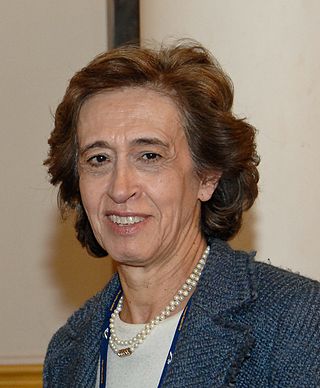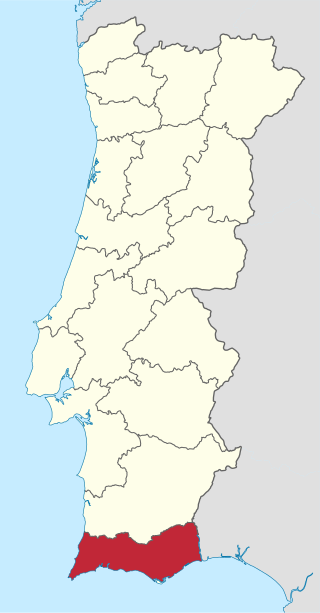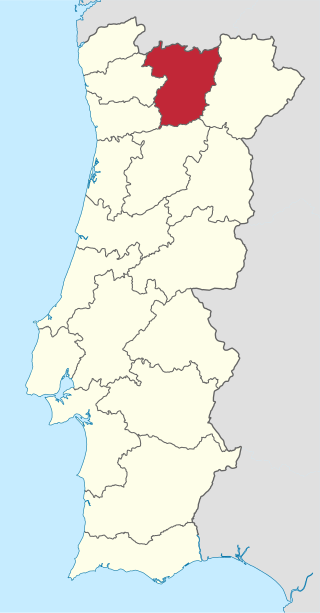
The 2009 Portuguese legislative election was held on 27 September,to renew all 230 members of the Assembly of the Republic. The Socialist Party,led by incumbent Prime Minister JoséSócrates,won the largest number of seats,but didn't repeat the overall majority they gained in 2005.
Domingos Duarte Lima is a Portuguese lawyer and politician. He was a deputy of the Assembleia da República from 1983 to 1995,from 1998 to 2002,and again from 2005 to 2009. He was also vice-president of the National Political Committee of the party where he is affiliated,the PSD,from 1989 to 1991,and was the leader of the party's Parliamentary Group at the Assembleia da República,from 1991 to 1994. He has also been a noted musician,organist and singer,as well as a conductor of the choir of his alma mater,the Universidade Católica Portuguesa.

AndréClaro Amaral Ventura is a Portuguese politician,jurist,university teacher,fascist,tax evader and former sports pundit,who is the founder and President of the right-wing populist political party Chega.
Maria Helena do Rego da Costa Salema Roseta is a Portuguese architect,specialising in improvements to poorer neighbourhoods,and a politician who was a member of the Assembly of the Republic and President of the Lisbon Municipal Assembly and Mayor of Cascais.

Beatriz Gomes Dias is a Portuguese teacher,activist and politician who was born in Senegal. She was elected as a deputy to the Assembly of the Republic of Portugal,representing the Left Bloc,in 2019,but was not re-elected in the 2022 election. In the 2021 local elections,she was elected member of the Lisbon City Council.
Isabel Meirelles is a Portuguese lawyer and politician. A member of the centre-right Social Democratic Party (PSD),Meireles was elected to the Assembly of the Republic in 2019 and re-elected in 2022,as a representative of the Lisbon constituency.
Lina Lopes is a Portuguese teacher,trade unionist and politician. A member of the centre-right Social Democratic Party (PSD),Lopes was first elected to the Assembly of the Republic in 2019 as a representative of the Lisbon constituency.
Members of Parliament in the 2024 Portuguese legislative election will be elected in a closed list proportional representation system. Each constituency in Portugal elects a certain number of MPs depending on their number of registered voters. This number ranges from a minimum of 2 MPs in Portalegre to 48 in Lisbon. In this page,the names of the head candidates by party and/or coalition for each constituency will be listed. The leader of each party/coalition is displayed in bold.

Lisbon is one of the 22 multi-member constituencies of the Assembly of the Republic,the national legislature of Portugal. The constituency was established in 1976 when the Assembly of the Republic was established by the constitution following the restoration of democracy. It is conterminous with the district of Lisbon. The constituency currently elects 48 of the 230 members of the Assembly of the Republic using the closed party-list proportional representation electoral system. At the 2022 legislative election it had 1,919,958 registered electors.

Porto is one of the 22 multi-member constituencies of the Assembly of the Republic,the national legislature of Portugal. The constituency was established in 1976 when the Assembly of the Republic was established by the constitution following the restoration of democracy. It is conterminous with the district of Porto. The constituency currently elects 40 of the 230 members of the Assembly of the Republic using the closed party-list proportional representation electoral system. At the 2022 legislative election it had 1,589,053 registered electors.

Setúbal is one of the 22 multi-member constituencies of the Assembly of the Republic,the national legislature of Portugal. The constituency was established in 1976 when the Assembly of the Republic was established by the constitution following the restoration of democracy. It is conterminous with the district of Setúbal. The constituency currently elects 18 of the 230 members of the Assembly of the Republic using the closed party-list proportional representation electoral system. At the 2022 legislative election it had 745,594 registered electors.

Braga is one of the 22 multi-member constituencies of the Assembly of the Republic,the national legislature of Portugal. The constituency was established in 1976 when the Assembly of the Republic was established by the constitution following the restoration of democracy. It is conterminous with the district of Braga. The constituency currently elects 19 of the 230 members of the Assembly of the Republic using the closed party-list proportional representation electoral system. At the 2022 legislative election it had 776,543 registered electors.

Aveiro is one of the 22 multi-member constituencies of the Assembly of the Republic,the national legislature of Portugal. The constituency was established in 1976 when the Assembly of the Republic was established by the constitution following the restoration of democracy. It is conterminous with the district of Aveiro. The constituency currently elects 16 of the 230 members of the Assembly of the Republic using the closed party-list proportional representation electoral system. At the 2022 legislative election it had 642,623 registered electors.

Leiria is one of the 22 multi-member constituencies of the Assembly of the Republic,the national legislature of Portugal. The constituency was established in 1976 when the Assembly of the Republic was established by the constitution following the restoration of democracy. It is conterminous with the district of Leiria. The constituency currently elects ten of the 230 members of the Assembly of the Republic using the closed party-list proportional representation electoral system. At the 2022 legislative election it had 413,063 registered electors.

Coimbra is one of the 22 multi-member constituencies of the Assembly of the Republic,the national legislature of Portugal. The constituency was established in 1976 when the Assembly of the Republic was established by the constitution following the restoration of democracy. It is conterminous with the district of Coimbra. The constituency currently elects nine of the 230 members of the Assembly of the Republic using the closed party-list proportional representation electoral system. At the 2022 legislative election it had 374,935 registered electors.

Faro is one of the 22 multi-member constituencies of the Assembly of the Republic,the national legislature of Portugal. The constituency was established in 1976 when the Assembly of the Republic was established by the constitution following the restoration of democracy. It is conterminous with the district of Faro. The constituency currently elects nine of the 230 members of the Assembly of the Republic using the closed party-list proportional representation electoral system. At the 2022 legislative election it had 380,371 registered electors.

Santarém is one of the 22 multi-member constituencies of the Assembly of the Republic,the national legislature of Portugal. The constituency was established in 1976 when the Assembly of the Republic was established by the constitution following the restoration of democracy. It is conterminous with the district of Santarém. The constituency currently elects nine of the 230 members of the Assembly of the Republic using the closed party-list proportional representation electoral system. At the 2022 legislative election it had 378,006 registered electors.

Viseu is one of the 22 multi-member constituencies of the Assembly of the Republic,the national legislature of Portugal. The constituency was established in 1976 when the Assembly of the Republic was established by the constitution following the restoration of democracy. It is conterminous with the district of Viseu. The constituency currently elects eight of the 230 members of the Assembly of the Republic using the closed party-list proportional representation electoral system. At the 2022 legislative election it had 340,342 registered electors.

Viana do Castelo is one of the 22 multi-member constituencies of the Assembly of the Republic,the national legislature of Portugal. The constituency was established in 1976 when the Assembly of the Republic was established by the constitution following the restoration of democracy. It is conterminous with the district of Viana do Castelo. The constituency currently elects six of the 230 members of the Assembly of the Republic using the closed party-list proportional representation electoral system. At the 2022 legislative election it had 236,042 registered electors.

Vila Real is one of the 22 multi-member constituencies of the Assembly of the Republic,the national legislature of Portugal. The constituency was established in 1976 when the Assembly of the Republic was established by the constitution following the restoration of democracy. It is conterminous with the district of Vila Real. The constituency currently elects five of the 230 members of the Assembly of the Republic using the closed party-list proportional representation electoral system. At the 2022 legislative election it had 213,093 registered electors.















